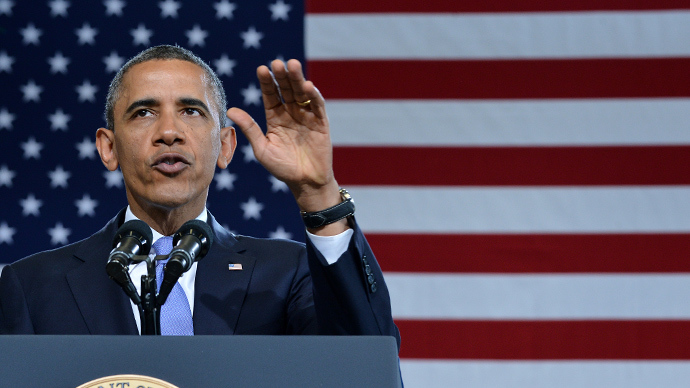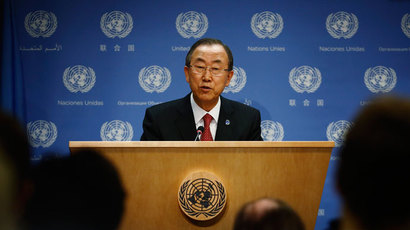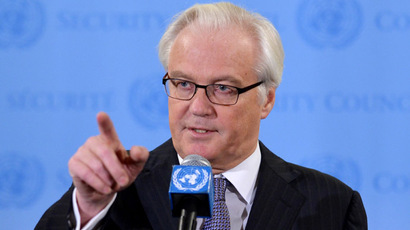Yes, we can: Obama waives anti-terrorism provisions to arm Syrian rebels

The Obama administration waived provisions of a federal law which ban the supply of weapons and money to terrorists. The move is opening doors to supplying Syrian opposition with protection from chemical weapons.
The Arms Export Control Act (AECA) allows the US president to waive provisions in Sections 40 and 40A, which forbid providing munitions, credit and licenses to countries supporting acts of terrorism. But those prohibitions can be waived "if the President determines that the transaction is essential to the national security interests of the United States."
President Barrack Obama ordered such a waiver for supplying chemical weapons-related assistance to "select vetted members" of Syrian opposition forces, the administration announced on Monday.
The announcement came after a UN report, which confirmed that sarin gas was indeed used in Syria on August 21, but didn’t point to either the Syrian army or the rebel forces as the culprits.
US ambassador to the UN Samantha Power said she was convinced that details of the report “make clear that only the regime could have carried out this large-scale chemical weapons attack.”
But Power’s counterpart from Russia Vitaly Churkin said the report has no “airtight proof or conclusions” pointing to the Assad government and that it allows “everyone to draw their own conclusions, hopefully professional and not affected by political pressure.”
The US plan to provide chemical weapons-related assistance to Syrian opposition was in the works before the August attack a senior administration official said as cited by NBC News. Under the AEC rules, it will take at least 15 days before any of the materials can be officially shipped to Syria.

The Syrian opposition groups are increasingly dominated by radical Islamists, many of them foreign fighters who, the UN says, are involved in numerous crimes committed in Syria. According to estimates of defense consultancy IHS Jane's, more than a half of the forces fighting to topple President Bashar Assad government are jihadists. The US explicitly listed Al-Nusra Front, a powerful Al-Qaeda-linked part of the Syrian opposition, as a terrorist organization.
Still, US politicians believe national intelligence community can ensure that the military assistance goes to the right hands.
"Our intelligence agencies, I think, have a very good handle on who to support and who not to support," Senator Bob Corker said on CBS on Sunday. "And there's going to be mistakes. We understand some people are going to get arms that should not be getting arms. But we still should be doing everything we can to support the free Syrian opposition."
The US, France and UK announced their intention to provide more help to the Syrian opposition after a Monday meeting of foreign ministers in Paris. US Secretary of State said the US pursuits a political solution of the Syrian crisis, which would deliver a future Syria without Bashar Assad.
The US in the past provided non-lethal aid to the Syrian opposition, like vehicles, night goggles and body armor. CIA also reportedly helped countries like Saudi Arabia and Qatar to smuggle weapons to the rebels.
Damascus denied any responsibility for the August sarin attack. But it agreed to dismantle its chemical weapons stockpile after a call from Russia. The move put on hold US plan to use military force against Syria in retaliation for the alleged use of chemical weapons.














